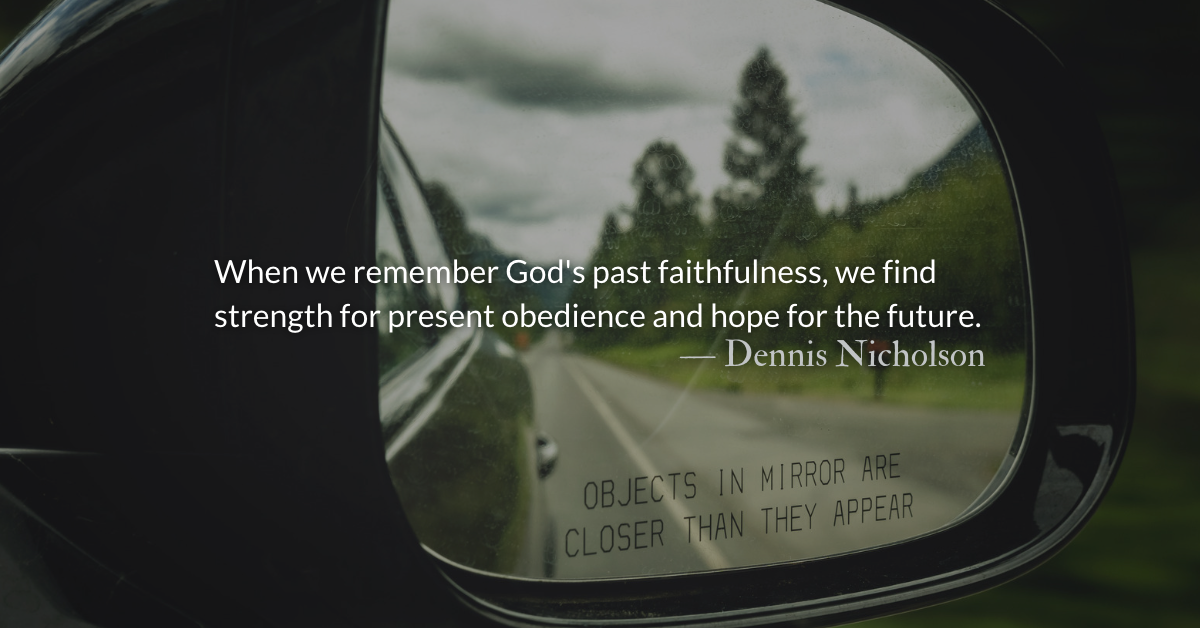Scripture Focus: Deuteronomy 9.1-6
1 Hear, Israel: You are now about to cross the Jordan to go in and dispossess nations greater and stronger than you, with large cities that have walls up to the sky. 2 The people are strong and tall—Anakites! You know about them and have heard it said: “Who can stand up against the Anakites?” 3 But be assured today that the Lord your God is the one who goes across ahead of you like a devouring fire. He will destroy them; he will subdue them before you. And you will drive them out and annihilate them quickly, as the Lord has promised you.
4 After the Lord your God has driven them out before you, do not say to yourself, “The Lord has brought me here to take possession of this land because of my righteousness.” No, it is on account of the wickedness of these nations that the Lord is going to drive them out before you. 5 It is not because of your righteousness or your integrity that you are going in to take possession of their land; but on account of the wickedness of these nations, the Lord your God will drive them out before you, to accomplish what he swore to your fathers, to Abraham, Isaac and Jacob. 6 Understand, then, that it is not because of your righteousness that the Lord your God is giving you this good land to possess, for you are a stiff-necked people.
Reflection: Defeating Giants of Pride
By Carolyn Soto Jackson
God frequently warned Israel against taking on pride and claiming righteousness that was not their own. In Deuteronomy 9, God promised to go before them and annihilate the Anakites. These descendants of Anak, who are noted as tall and strong, did not intimidate God. He told Israel not to fear these “giants.” God made it clear he would destroy them with one quick blow and the land they possessed would be given over to the Israelites.
Pride frequently tempted the Israelites. They might think they had reason for pride after defeating the Anakites but they were certainly not capable of defeating them without God.
Pride is often described as, “haughty eyes” as in Proverbs 6:16-17. In Hebrew, sinful pride means being “set on high” or “lifting oneself on high.” In English, we have similar idioms such as “high and mighty” and “holier than thou.”
Why do we take on pride? For what reasons do we try to lift ourselves above others? It can be easy to succumb to haughty eyes by looking down on others or viewing ourselves above others. For centuries, followers of God have taken on pride for no other reason than their own glory, all the while, robbing glory from God who deserves it.
Let us not forget, God detests the sin of pride. When God’s people boast about themselves, fill their chests in arrogance, and exult in their own righteousness, God cringes.
God destroyed the wicked nation of the Anakites because of their evil ways, graciously handing over the land to the Israelites after they crossed the Jordan.
God did not give Israel possession of the land because of their humility or righteousness. It was because of God’s disgust at the pride and wickedness of the Anakites. This revealed to Israel God’s grace, omnipotence, and desire to teach his children to give glory where it was due.
There will be times in our lives when we believe we figured it out, and we succumb to pride. But God is the one who goes before us. God is the one who gives us wisdom. God paves the way. Knocks down every giant. Empowers every success. When we are tempted to take on pride in any accomplishment, let us be reminded, “Not to us, Lord, not to us but to your name be the glory.” (Psalm 115.1)
Let God defeat our giants of pride.
Divine Hours Prayer: The Call to Prayer
Be strong and let your heart take courage, all you who wait for the Lord. — Psalm 31.24– From The Divine Hours: Prayers for Springtime by Phyllis Tickle.
Today’s Readings
Deuteronomy 9 (Listen 5:06)
2 Corinthians 3 (Listen 2:25)
Read more about Are We Proud of the Prideful?
Too often, we aren’t ashamed of the prideful, we are proud of them. “Look at all they’ve done!”
Read more about Icarus and Israel
God commanded his people to repent and show their sorrow. Instead, the people are filled with pride.











